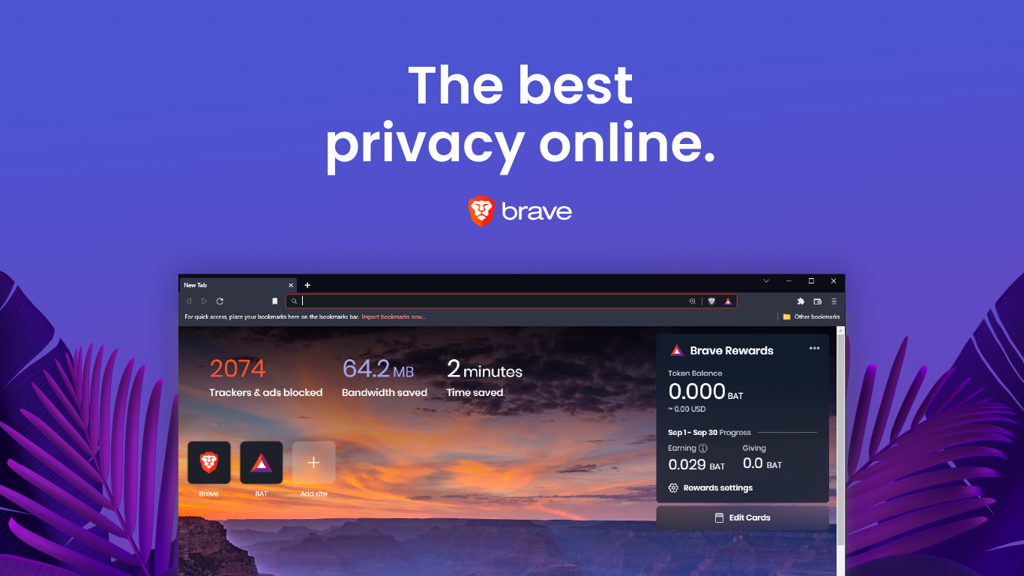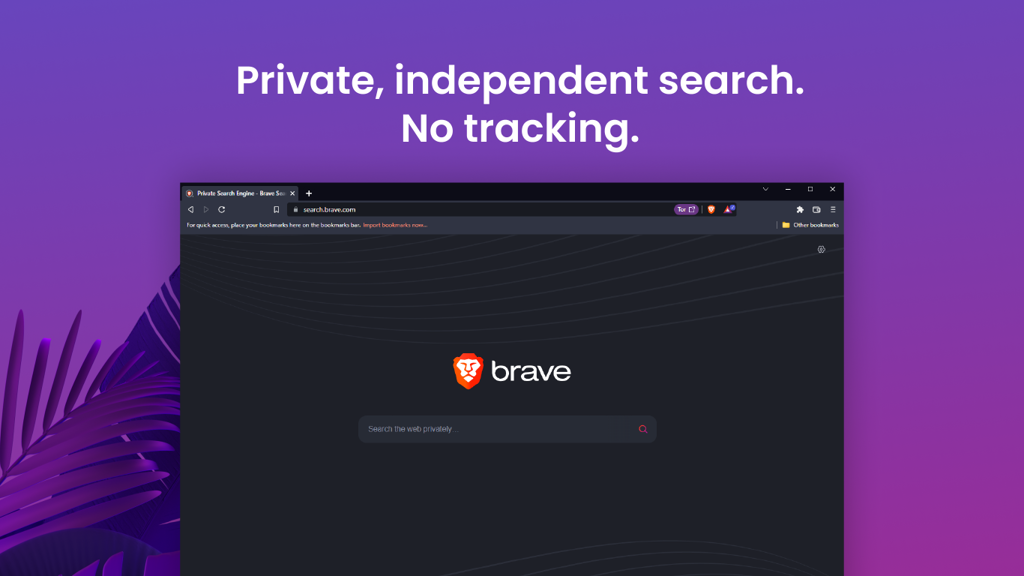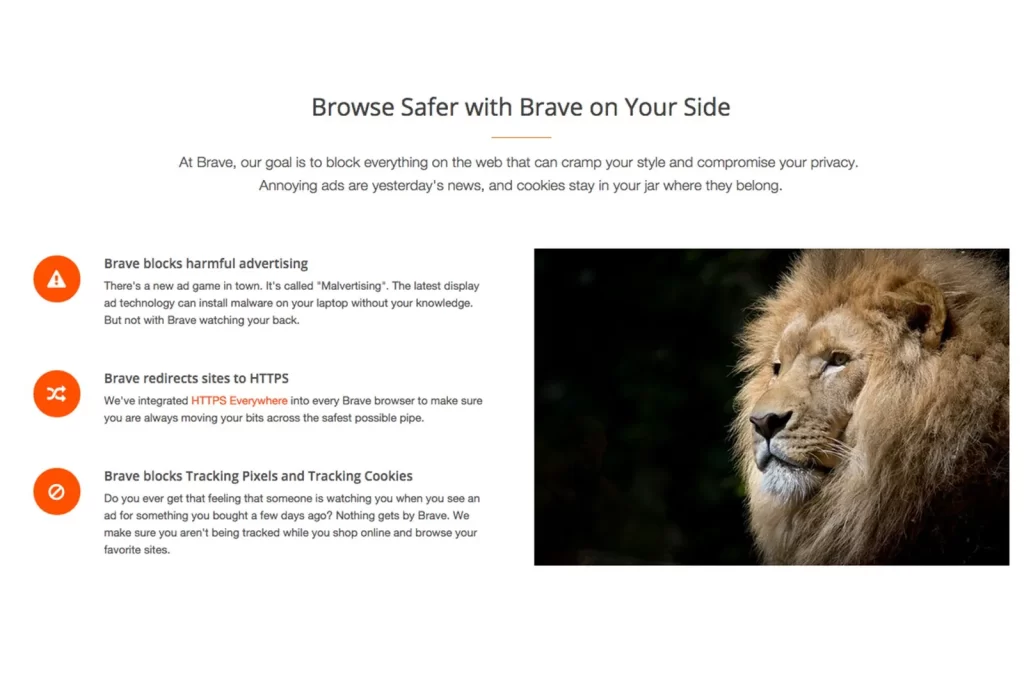Introduction
In today’s digital age, browsing the internet has become an integral part of our lives. Whether we are seeking information, connecting with others, or engaging in online activities, the browser serves as our gateway to the vast expanse of the World Wide Web.
However, this journey is often interrupted by a constant barrage of advertisements that intrude upon our browsing experience. This is where ad-free browsers come into play, providing a sanctuary from the intrusive world of online advertising.
Definition of an ad-free browser
An ad-free browser refers to a web browser that incorporates tools and features specifically designed to eliminate or block advertisements during web browsing sessions. While most popular browsers offer basic ad-blocking extensions or plugins as add-ons, ad-free browsers take this concept further by integrating robust mechanisms to ensure a seamless and uninterrupted browsing experience devoid of intrusive ads. The ad-free browser ensures uninterrupted browsing without annoying pop-ups.
Importance of privacy and user experience in browsing
Privacy has become a primary concern for internet users worldwide. With each click on a webpage accompanied by tracking cookies and hidden scripts, our online activities are monitored by various entities for targeted advertising purposes.
Advertisements not only compromise user privacy but also degrade the overall browsing experience due to slow loading times and cluttered interfaces. User experience plays a vital role in ensuring an enjoyable and efficient web-browsing journey.
Unwanted ads disrupt this experience by diverting attention away from content and imposing unnecessary delays on page loading times. Ad-free browsers address these concerns head-on by focusing on enhancing both privacy measures and user experience.
Purpose of the outline: to explore the concept of ad-free browsers in detail
The purpose of this outline is to delve into the world of ad-free browsers comprehensively. By examining their definition, understanding their significance regarding privacy and user experience, and exploring various popular and lesser-known options, we will gain a thorough understanding of how ad-free browsers revolutionize the way we browse the internet. This exploration will enable us to make informed decisions about choosing the right browser to suit our needs, whether it be for increased privacy, faster browsing speeds, or a more pleasant user interface.
Overview of Advertisements in Browsers
The prevalence of ads in modern browsers
Advertisements have become an intrinsic part of the online experience, and modern browsers are no exception. As internet usage has grown exponentially over the years, so has the dependence on online advertising as a revenue source for companies. Most popular browsers, such as Google Chrome, Mozilla Firefox, and Microsoft Edge, display various forms of advertisements during browsing sessions.
These ads can range from banner ads and pop-ups to video commercials and sponsored content. The sheer prevalence of these ads is undeniable, with users encountering them on almost every website they visit.
How ads affect user experience and browsing speed
While online advertisements serve as a means for businesses to generate revenue and support content creators, they often come at the cost of user experience and browsing speed. Ads can significantly hinder the overall browsing experience by interrupting content consumption with intrusive pop-ups or distracting banner ads that cover significant portions of webpages. Moreover, ad-heavy websites tend to load more slowly due to the additional scripts required to display multiple ads simultaneously.
The potential risks associated with online advertising (e.g., tracking, malware)
Beyond impairing user experience and slowing down browsing speed, online advertising also poses potential risks to privacy and security. One major concern is targeted tracking: advertisers collect vast amounts of data about users’ browsing habits through cookies or other tracking technologies in order to deliver personalized ads.
This extensive data collection raises concerns about privacy invasion and potential misuse by third-party entities. In addition to tracking concerns, malicious actors exploit advertisements as a vector for distributing malware. Downloading an ad-free browser extension can enhance your online privacy.
Malvertising is a term used when cybercriminals inject malicious code into legitimate ad networks or create fake advertisements that lead unsuspecting users to harmful websites or initiate downloads without their consent. Such attacks can result in compromised systems, data breaches, or financial losses.
Overall, the prevalence of ads in modern browsers brings about a range of challenges, including compromised user experience, slower browsing speed, privacy invasion through targeted tracking, and the potential for malware infections. It is these issues that have led to the rise in popularity of ad-free browsers among users seeking a more secure and streamlined browsing experience.
Benefits of Ad-Free Browsers
Enhanced Privacy and Security Features
Ad-free browsers offer a range of privacy and security features that significantly enhance user experience. One of the key advantages is the ability to block tracking cookies and prevent data collection by advertisers.
These cookies, often embedded in ads, track users’ online activities, enabling companies to gather personal information for targeted advertising purposes. By blocking these tracking cookies, ad-free browsers provide users with a level of anonymity and protect their online privacy.
Furthermore, ad-free browsers also offer protection against malicious ads and potential malware infections. Malicious actors often exploit vulnerabilities in advertisements to plant malware or launch phishing attacks on unsuspecting users.
However, by disabling ads altogether or thoroughly vetting them before they are displayed, ad-free browsers create a safer browsing environment. This shields users from inadvertently clicking on harmful content and helps protect their devices from various cyber threats.
Improved User Experience
Ad-free browsers not only prioritize privacy but also revolutionize the user experience by eliminating the annoyances associated with traditional browsing. One significant advantage is faster page loading times due to the absence of ad scripts and content. Ads can considerably slow down webpage loading speed as they require additional network requests and consume system resources.

By removing these elements entirely, ad-free browsers ensure smoother navigation and quicker access to desired content. Moreover, an uncluttered interface is another advantage that contributes to an improved user experience in ad-free browsing environments.
Without intrusive ads cluttering up webpages, users can focus solely on the content they are interested in without distractions or disruptions. This streamlined interface enhances readability and allows for better engagement with websites, making the overall browsing experience more enjoyable.
Ad-free browsers provide numerous benefits for users seeking enhanced privacy protections and an improved browsing experience. These include advanced features such as blocking tracking cookies to prevent data collection by advertisers, as well as safeguarding against malicious ads and potential malware infections.
Additionally, ad-free browsers offer faster page loading times by eliminating ad scripts and content, while providing users with an uncluttered interface that allows them to focus on the content they desire. By embracing these ad-free alternatives, users can regain control over their online experience and enjoy a safer and more seamless browsing journey.
Popular Ad-Free Browsers
Brave Browser
Brave Browser has gained significant popularity as a robust ad-free browser that prioritizes user privacy and security. One of its standout features is the built-in ad-blocker, which effectively blocks intrusive advertisements from appearing on webpages.
This not only enhances user experience by eliminating annoying distractions but also significantly speeds up browsing, as there is no need to load heavy ad scripts and content. Moreover, Brave incorporates HTTPS Everywhere, a feature that automatically upgrades connections to websites using the secure HTTPS protocol whenever possible, further ensuring users’ data privacy.
What sets Brave apart from other ad-free browsers is its unique approach to compensating users for their attention in a privacy-respecting way. Brave Rewards allows users to opt into seeing privacy-respecting ads and earn Basic Attention Tokens (BAT) in return.
These tokens can be used to support creators and publishers or even be converted into real-world rewards. By providing an incentivized system that respects user privacy, Brave aims to reshape the advertising industry’s dynamics while giving users more control over their online experience.
Mozilla Firefox with uBlock Origin
Mozilla Firefox is renowned for its commitment to a free and open internet, and when combined with the uBlock Origin extension, it becomes an excellent choice for those seeking an ad-free browsing experience. uBlock Origin is a powerful open-source ad-blocker extension designed specifically for Firefox.
It effectively filters out unwanted ads, banners, pop-ups, and trackers that would otherwise hinder seamless browsing. The introduction of uBlock Origin empowers users by allowing them to customize their blocking preferences according to their specific needs.
Advanced users have access to extensive customization options within uBlock Origin’s settings menu. These options include selecting specific filters lists or creating custom ones tailored to individual preferences.
The ability to fine-tune these settings ensures optimal protection against intrusive ads while maintaining compatibility with different websites. By combining the robust privacy features of Mozilla Firefox with the versatility and customization options provided by uBlock Origin, users can enjoy a seamless, ad-free browsing experience that aligns with their preferences and protects their privacy.
Lesser-Known Ad-Free Browsers Worth Exploring
A. Opera BrowserOpera Browser, though not as widely recognized as some of its counterparts, offers a commendable browsing experience with its built-in ad-blocker feature found in the settings menu. This feature allows users to seamlessly block intrusive ads without the need for external extensions or plugins. Additionally, Opera goes above and beyond by providing a free VPN service that further enhances user privacy. The VPN encrypts internet traffic, making it more difficult for third parties to track online activities and ensuring a secure browsing experience.
B. Pale Moon BrowserPale Moon Browser may not be as familiar to many users, but it is certainly worth exploring for those seeking an ad-free browsing experience. One of the notable features of Pale Moon is its customizable interface, allowing users to tailor their browsing environment according to their preferences. Furthermore, this browser comes with a built-in ad-blocker that effectively blocks intrusive ads from cluttering web pages. With its focus on user customization and ad-blocking capabilities, Pale Moon offers an alternative option for those seeking a personalized and streamlined browsing experience.
Conclusion
In an increasingly advertisement-driven online world, the availability of ad-free browsers provides a refreshing alternative for internet users who value privacy and desire seamless browsing experiences free from distractions. Through this article, we have explored various lesser-known browsers that offer compelling features such as built-in ad-blockers and additional privacy-enhancing tools like VPN services. By taking advantage of these browsers’ capabilities, users can regain control over their online experiences while enjoying faster page loading times and enhanced security measures.
So why settle for interruptions when you can traverse the vast digital landscape with efficiency and tranquility? Embrace the power of ad-free browsers today!





